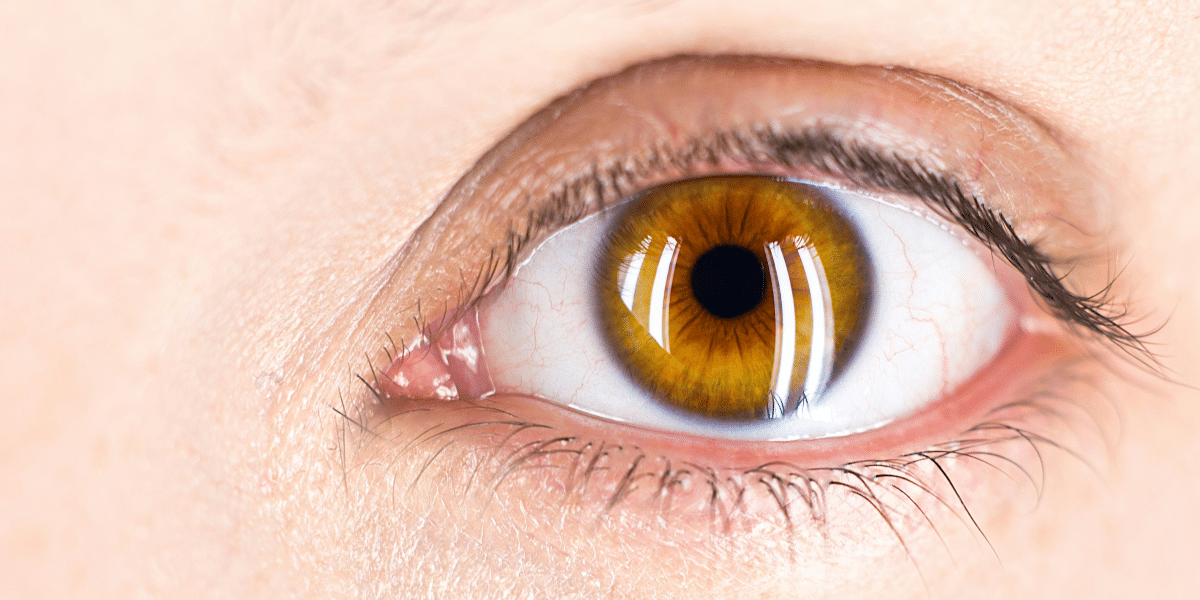By: mycorneacare.com
Discover the Importance of Eye Hygiene in Preventing Conjunctival Pigmentation. Learn Tips to Maintain Healthy Eyes.
When it comes to our health, we often focus on what we eat, how much we exercise, and our mental well-being. However, eye hygiene, an essential aspect of overall health, is frequently overlooked. Proper eye hygiene is crucial in preventing various eye conditions. One of which is conjunctival pigmentation.
This blog post will explore what conjunctival pigmentation is. Learn why it occurs and how proper eye hygiene can help prevent it. Keep on reading!
What Is Conjunctival Pigmentation?
Conjunctival pigmentation refers to the discoloration or darkening of the conjunctiva. It is the thin, transparent layer covering the white part of the eye and lining the eyelids. This condition can cause noticeable changes in the appearance of your eyes. It can lead to cosmetic concerns and, in some cases, discomfort. You can also check out this page on eye discoloring for more information.
Why Does Conjunctival Pigmentation Occur?
Several factors can lead to conjunctival pigmentation. This includes sun exposure, medications, inflammation, allergies, and genetics.
Excessive exposure to ultraviolet (UV) rays can cause pigmentation changes in the eyes, similar to how it affects the skin. Certain medications can also cause pigmentary changes in the conjunctiva.
Additionally, chronic inflammation or allergic reactions can lead to pigmentation changes over time. Genetics can play a role as well. Some individuals have a genetic predisposition to developing conjunctival pigmentation.
The Role of Eye Hygiene in Preventing Conjunctival Pigmentation
Practicing good eye hygiene is a simple yet effective way to reduce the risk of developing conjunctival pigmentation. Here are some crucial eye hygiene habits to incorporate into your daily routine:
Wash Your Hands Regularly
Always wash your hands with soap and water before touching your eyes. This is important especially when putting in or taking out contact lenses. This helps prevent the transfer of dirt and bacteria to your eyes. It reduces the risk of infections and inflammation.
Avoid Rubbing Your Eyes
Rubbing your eyes can cause irritation and introduce bacteria, leading to inflammation. If your eyes feel itchy or irritated, try using lubricating eye drops instead.
Use Sunglasses
Wearing sunglasses that block 100% of UV rays can protect your eyes from harmful UV radiation. This is especially important when you are outdoors for extended periods.
Maintain Clean Eyewear
Regularly clean your eyeglasses and sunglasses to ensure they are free from dirt and bacteria. If you wear contact lenses, follow the recommended cleaning and storage procedures.
Practice Good Makeup Hygiene
If you use eye makeup, make sure to remove it thoroughly before going to bed. Avoid sharing makeup products with others. Make sure to replace your makeup regularly to prevent bacterial growth.
Stay Hydrated
Drinking enough water helps maintain overall health, including eye health. Hydrated eyes are less likely to become dry and irritated. This reduces the risk of inflammation.
Schedule Regular Eye Check-ups
Visit your eye doctor regularly for comprehensive eye exams. Early detection of any eye issues can help prevent complications like conjunctival pigmentation.
Learning More About Conjunctival Pigmentation
Eye hygiene is a vital aspect of maintaining good eye health. It can play a significant role in preventing conjunctival pigmentation. By incorporating simple habits, you can protect your eyes from unnecessary pigmentation changes.
Remember, your eyes are precious, and taking care of them should be a priority. To ensure your eyes stay healthy, always practice good eye hygiene and consult with an eye care professional regularly.
For more topics aside from healthy vision, check out our blog!
Published by: Khy Talara
















